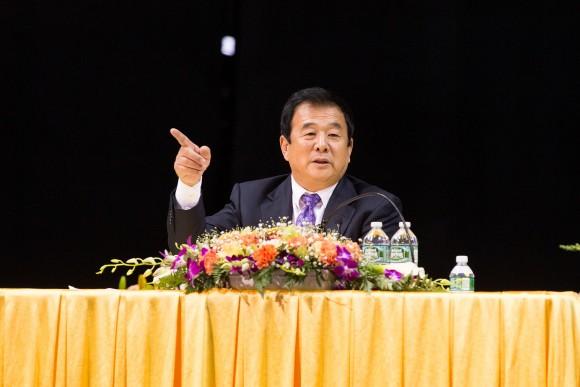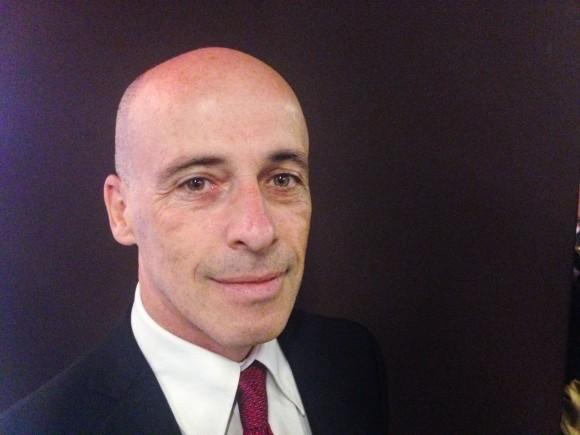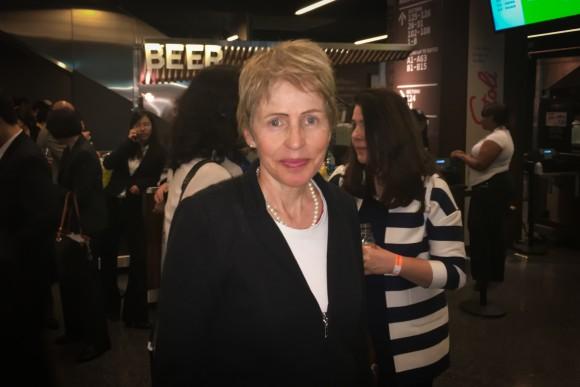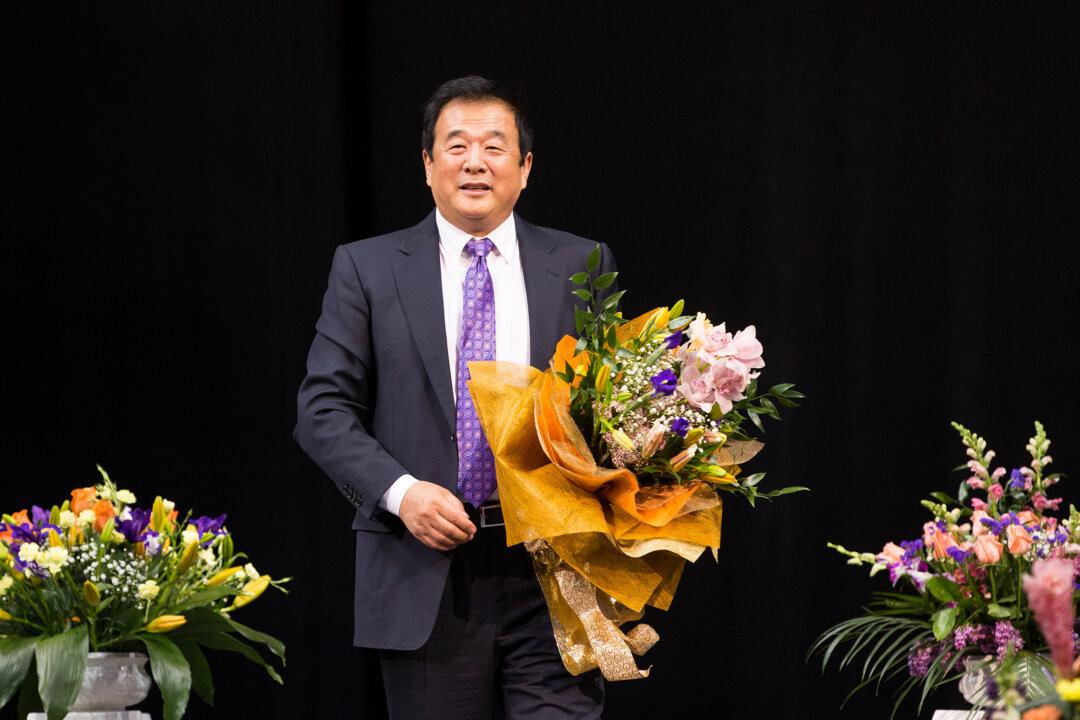NEW YORK—Wearing their trademark yellow T-shirts or blue jackets, practitioners of Falun Dafa, a traditional Chinese spiritual discipline, could be spotted over the extended weekend of May 11-13 at various New York City landmarks doing slow exercises and handing out pamphlets. In the climax of the events in New York’s public spaces, on Friday passersby along 42nd Street were treated to a lively parade.
On May 14, more than 10,000 practitioners from 58 countries and regions swapped their iconic apparel for business wear, and headed indoors to Brooklyn’s Barclays Center for a conference where individuals spoke about their experiences of self-improvement, and related how they have helped expose a brutal persecution in China.
The highlight of the full-day conference was an appearance of Mr. Li Hongzhi, the founder of Falun Dafa.
Mr. Li first publicly taught the traditional Chinese spiritual discipline Falun Dafa, or Falun Gong, in China almost exactly a quarter of a century ago, on May 13, 1992. Falun Dafa practitioners celebrate this date as World Falun Dafa Day.
Adherents of Falun Dafa practice five sets of exercises, and live by the principles of truthfulness, compassion, and tolerance. Because Falun Dafa brought improved health and moral uplift to many Chinese, the practice spread quickly through word of mouth. By 1999, there were 70 million to 100 million practitioners, according to Chinese state and practitioner estimates respectively.
Falun Dafa’s popularity was viewed by former Chinese Communist Party leader Jiang Zemin as a challenge to the atheist Chinese regime. On July 20, 1999, Jiang launched a campaign to eradicate the practice, which included a massive propaganda effort. Practitioners inside and outside China have since been striving to clarify to people what Falun Dafa is and why the Chinese regime has resorted to a persecution that includes atrocities like forced organ harvesting.
At the New York conference, Mr. Li spoke in the early afternoon for about two hours. He encouraged practitioners to focus on their self-cultivation, and to continue to tell people about the persecution in China. Mr. Li also took questions from practitioners, and was presented with a bouquet of flowers after he finished lecturing.

A short video documentary about the 25th anniversary of the introduction of Falun Dafa was aired after a one-hour lunch break.
The rest of the conference featured individual practitioners reflecting on their journey of self-cultivation—Falun Dafa practitioners refer to their work at physical, moral, and spiritual improvement as cultivation—and how they have persisted in raising awareness about the persecution.
Ding Yating, a former athlete in China who later migrated to Germany, had started practicing Falun Dafa in 2011 after she stumbled upon Falun Dafa literature while browsing the web.
Ding recounted being unable to do the meditation exercise because her limbs were stiff from multiple injuries suffered during years of athletic training, but after putting her mind to it was gradually able to sit in full lotus position, which requires sitting with each leg folded on top of the other. She also recalled an episode where she peacefully dissuaded likely Chinese agents from the local Chinese consulate from harassing a Falun Dafa information booth she had set up at the airport.
Ye Xiaomeng, a 13-year-old student from the United States, talked about how being mindful of Falun Dafa’s teachings helped her overcome a severe videogame addiction, as well as feelings of jealousy when her peers out performed her in school.
“You feel this sincere wish by everyone to become a better person,” said Vadim Berestetsky, a practitioner from Israel, when asked about what he felt about the practitioners’ talks.

Berestetsky, a graphic designer who found Falun Dafa online in 1998, thinks the conference is a good opportunity to learn from the experiences of others. “I think it’s great and it’s always very encouraging,” he said.
Svetlana Polunina, Russian practitioner, said that the sharing of a lady practitioner who explained the persecution to Chinese people via instant messaging impressed upon her the urgency of needing to stop the persecution of Falun Dafa in China.

“I really want to help stop this persecution,” said Polunina, an advertising agency owner from Moscow. In Russia, Polunina has sought out Russian government officials, the police, doctors, and others to clarify the facts about the Chinese regime’s persecution.
Manu Huwyler, a 62-year-old teacher from Switzerland who first learned about Falun Dafa in a magazine 20 years ago, was particularly impressed by the talk by He Mai, a practitioner from Missouri who found balance among his busy medical practice and research, caring for his family, and cultivating in Falun Dafa while doing a good job with his activism telling people about Falun Dafa and the persecution.

Huwyler is familiar with juggling multiple commitments. She herself had to care for her family, used to work for a big company in Switzerland, and acted to raise awareness about the persecution.
Emel Akan, Irene Luo, and Petr Svab contributed to this article.




